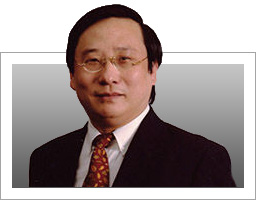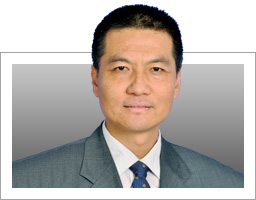Learn from Deng's diplomacy

The author was an English interpreter for Deng Xiaoping in the 1980s, and is director of the China National Association of International Studies.
Vision, courage and wisdom are needed to arrive at the best solutions to international crises and maintain regional peace
This year marks the 110th anniversary of the birth of Deng Xiaoping. Although seventeen years have elapsed since Deng's passing away in 1997, China is still forging ahead in the overall direction of reform and opening-up to the outside world that Deng charted for China after he became the paramount leader at the end of the 1970s.
Although China is now facing a very different international situation and different challenges compared with those when Deng was the paramount leader, China's current diplomacy can still learn a lot from Deng's wisdom.
First, China should draw inspiration from Deng and avoid any arms race or military confrontation. Toward the middle of the 1980s, Deng concluded that, while the rivalry between the United States and the then Soviet Union was as tense as ever, a new world war was not likely to happen any time soon, if at all. Therefore, Deng decided that, while China still needed to achieve modernization of its national defense, it should devote as many resources as possible to develop its economy, rather than wasting precious resources on building up its military. One of the important decisions in this regard was to reduce the number of military personnel by one million.
This decision spared large resources for the country's economic development. Had China done otherwise, it would not have achieved its rapid economic development and profound improvement in the living standards of the Chinese people.
China should continue to make development its top priority and stand firmly for peace and development, not only in China, but in the world at large.
Second, Deng insisted that China should never seek hegemony. This policy of seeking no hegemony is still guiding China today. Even though China has become the second-largest economy in the world, and is expected to surpass the United States as the largest economy, possibly this decade, it does not seek hegemony or expansion.
Heeding Deng's wisdom, China should not seek to impose its own values or ways of thinking on other countries, and should treat all countries in the world as equals and with respect. China should not make the mistake of "overreaching" in its foreign policies as the US has done many times in recent years.
Learn from Deng's diplomacy
Although seventeen years have elapsed since Deng's passing away in 1997, China is still forging ahead in the overall direction of reform and opening-up to the outside world that Deng charted for China after he became the paramount leader at the end of the 1970s. [more]
Revisiting Deng and the socialist market economy
China has come a very long way since Deng Xiaoping articulated his vision of a reformed and modern China in December 1978. More than 35 years after the historical Third Plenum of the 11th Central Committee of the Communist Party of China in December 1978, "socialist market economy" has become a frequently used phrase in modern economic and development literature. [more]
Scholars explore Deng's impact
Ranging from Deng's life and thought to the history of reform in China, the overseas studies of this former Chinese leader have undeniably shed new light on not only his own political, economic, cultural, military, and, diplomatic thought, but also on his important theories including the “One Country, Two Systems” policy that successfully enabled Hong Kong’s smooth return to the Motherland. [more]
Carry on institutional reform
By directing China's reform and opening-up since 1978 and innovating socialism with Chinese characteristics, the late Chinese leader Deng Xiaoping made a breakthrough in improving the institutional building of modern China, leading the country from the rule of man to the rule of law. [more]








